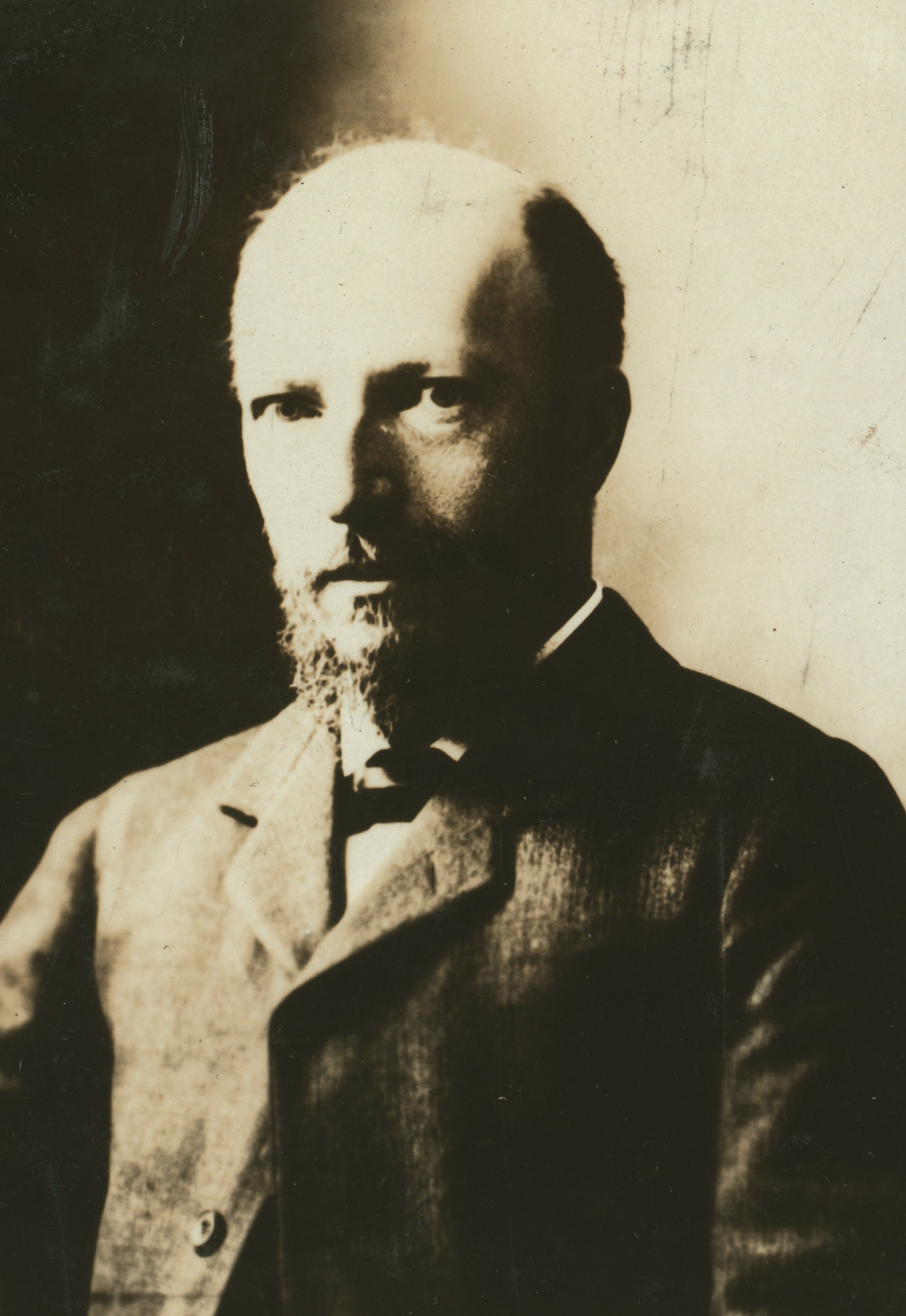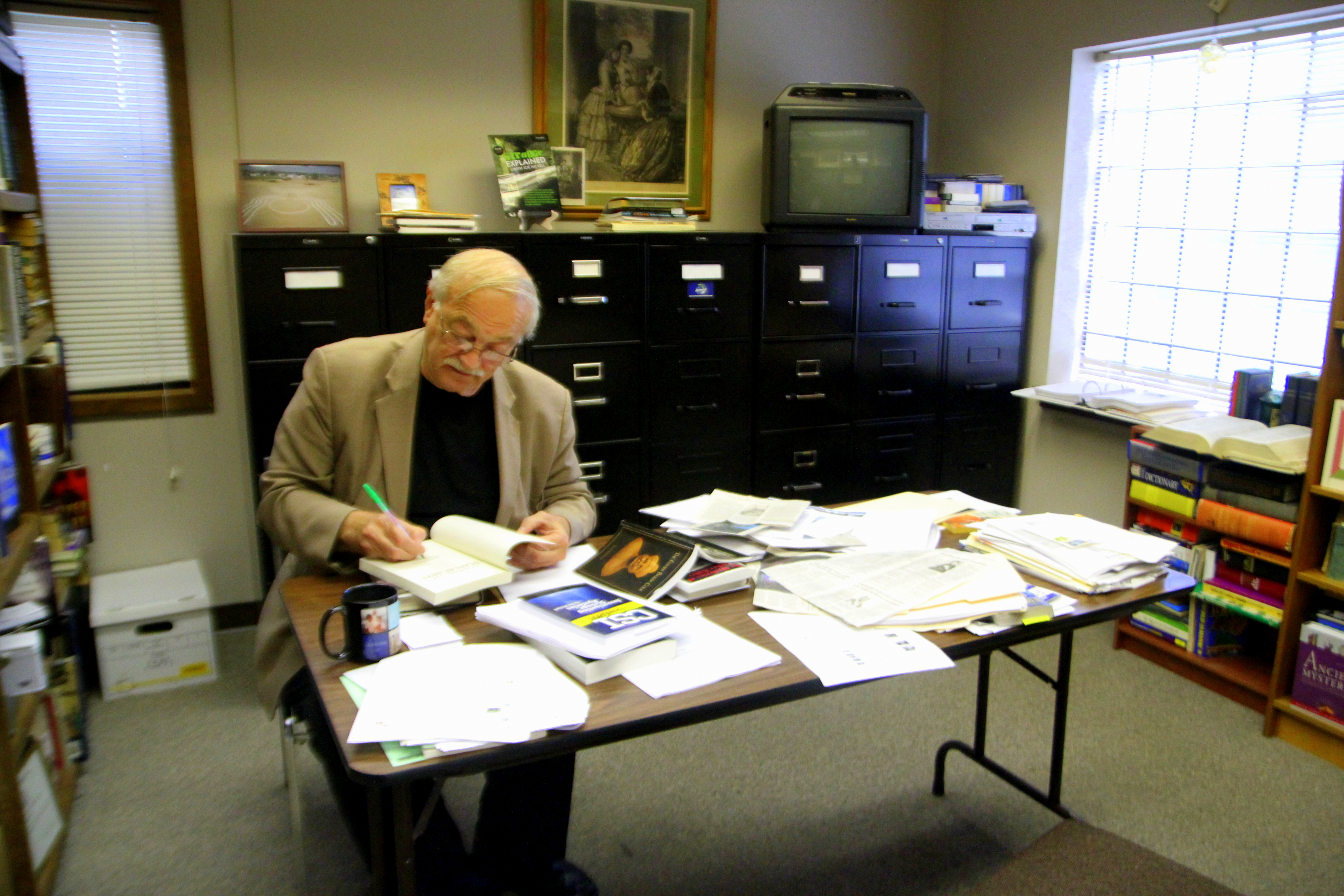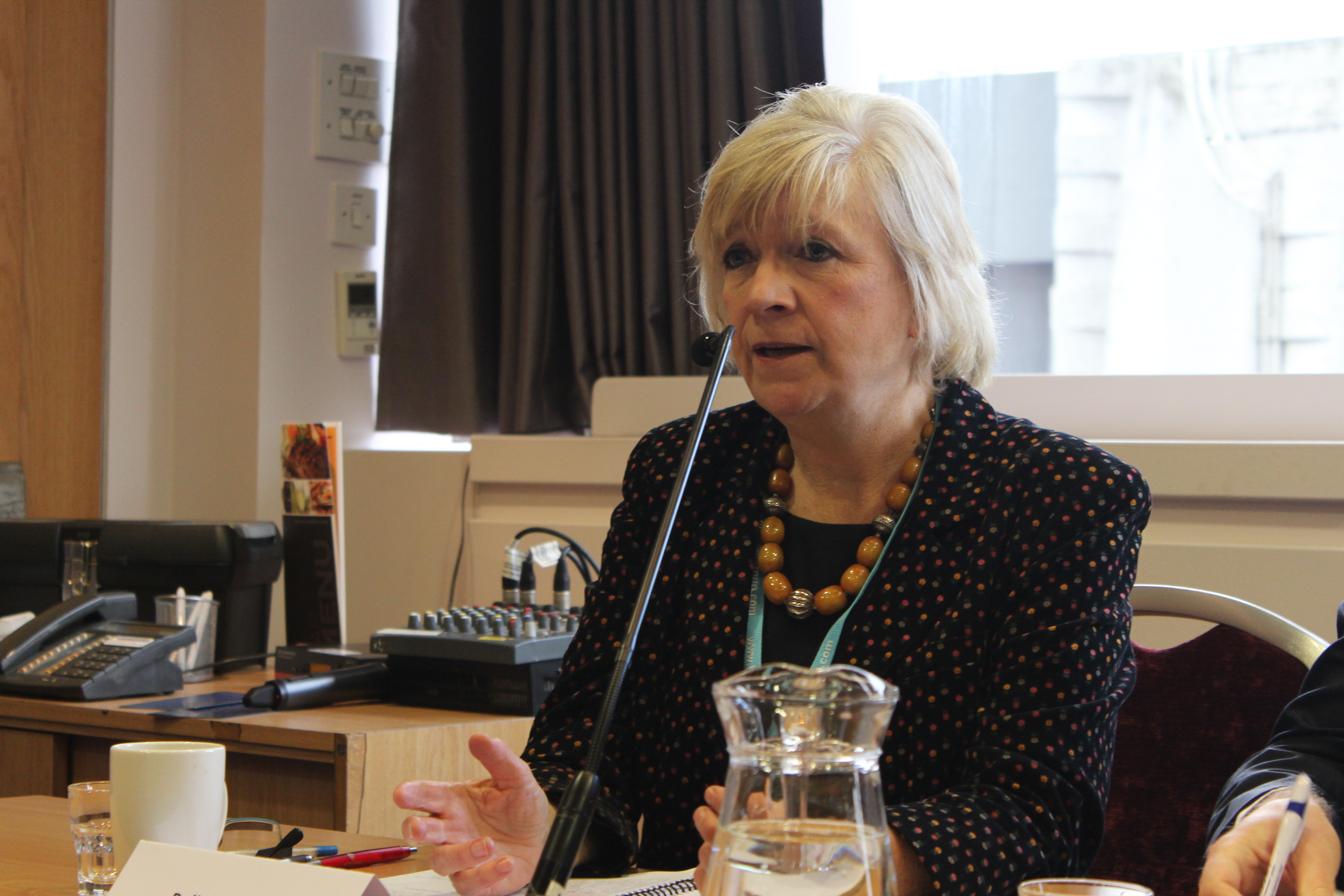|
A Rough History Of Disbelief
''A Rough History of Disbelief'', known in the United States as ''Atheism: A Brief History of Disbelief'', is a 2004 television documentary series written and presented by Jonathan Miller for the BBC and tracing the history of atheism. It was first shown on BBC Four and was repeated on BBC Two. It was first shown in the U.S. on PBS in 2007. The series includes extracts from interviews with Arthur Miller, Richard Dawkins, Steven Weinberg, Colin McGinn, Denys Turner, Pascal Boyer and Daniel Dennett. The series also includes many quotations from the works of atheists, agnostics and deists, all read by Bernard Hill. The series consists of three 60-minute episodes: * "Shadows of Doubt" * "Noughts and Crosses" * "The Final Hour" A series of six supplementary programmes was made from material that did not fit into the program; this was dubbed '' The Atheism Tapes''. Content The bulk of the presentation is a historical review of atheism in the West with asides to the author's ... [...More Info...] [...Related Items...] OR: [Wikipedia] [Google] [Baidu] |
Jonathan Miller
Sir Jonathan Wolfe Miller CBE (21 July 1934 – 27 November 2019) was an English theatre and opera director, actor, author, television presenter, humourist and physician. After training in medicine and specialising in neurology in the late 1950s, he came to prominence in the early 1960s in the comedy revue '' Beyond the Fringe'' with Peter Cook, Dudley Moore and Alan Bennett. Miller began directing operas in the 1970s. His 1982 production of a "Mafia"-styled ''Rigoletto'' was set in 1950s Little Italy, Manhattan. In its early days, he was an associate director at the National Theatre. He later ran the Old Vic Theatre. As a writer and presenter of more than a dozen BBC documentaries, Miller became a television personality and public intellectual in Britain and the United States. Life and career Early life Miller grew up in St John's Wood, London, in a well-connected Jewish family. His father Emanuel (1892–1970), who was of Lithuanian descent and suffered from severe rh ... [...More Info...] [...Related Items...] OR: [Wikipedia] [Google] [Baidu] |
Atheism
Atheism, in the broadest sense, is an absence of belief in the existence of deities. Less broadly, atheism is a rejection of the belief that any deities exist. In an even narrower sense, atheism is specifically the position that there no deities. Atheism is contrasted with theism, which in its most general form is the belief that at least one deity exists. The first individuals to identify themselves as atheists lived in the 18th century during the Age of Enlightenment. The French Revolution, noted for its "unprecedented atheism", witnessed the first significant political movement in history to advocate for the supremacy of human reason.Extract of page 22 In 1967, Albania declared itself the first official atheist coun ... [...More Info...] [...Related Items...] OR: [Wikipedia] [Google] [Baidu] |
History Of Atheism
Atheism is in the broadest sense a rejection of any belief in the existence of deities. in : "The terms ''ATHEISM'' and ''AGNOSTICISM'' lend themselves to two different definitions. The first takes the privative ''a'' both before the Greek ''theos'' (divinity) and ''gnosis'' (to know) to mean that atheism is simply the absence of belief in the gods and agnosticism is simply lack of knowledge of some specified subject matter. The second definition takes atheism to mean the explicit denial of the existence of gods and agnosticism as the position of someone who, because the existence of gods is unknowable, suspends judgment regarding them ... The first is the more inclusive and recognizes only two alternatives: Either one believes in the gods or one does not. Consequently, there is no third alternative, as those who call themselves agnostics sometimes claim. Insofar as they lack belief, they are really atheists. Moreover, since the absence of belief is the cognitive position in w ... [...More Info...] [...Related Items...] OR: [Wikipedia] [Google] [Baidu] |
Percussion
A percussion instrument is a musical instrument that is sounded by being struck or scraped by a beater including attached or enclosed beaters or rattles struck, scraped or rubbed by hand or struck against another similar instrument. Excluding zoomusicological instruments and the human voice, the percussion family is believed to include the oldest musical instruments.''The Oxford Companion to Music'', 10th edition, p.775, In spite of being a very common term to designate instruments, and to relate them to their players, the percussionists, percussion is not a systematic classificatory category of instruments, as described by the scientific field of organology. It is shown below that percussion instruments may belong to the organological classes of ideophone, membranophone, aerophone and cordophone. The percussion section of an orchestra most commonly contains instruments such as the timpani, snare drum, bass drum, tambourine, belonging to the membranophones, and cy ... [...More Info...] [...Related Items...] OR: [Wikipedia] [Google] [Baidu] |
Harold K
Harold may refer to: People * Harold (given name), including a list of persons and fictional characters with the name * Harold (surname), surname in the English language * András Arató, known in meme culture as "Hide the Pain Harold" Arts and entertainment * ''Harold'' (film), a 2008 comedy film * ''Harold'', an 1876 poem by Alfred, Lord Tennyson * ''Harold, the Last of the Saxons'', an 1848 book by Edward Bulwer-Lytton, 1st Baron Lytton * ''Harold or the Norman Conquest'', an opera by Frederic Cowen * ''Harold'', an 1885 opera by Eduard Nápravník * Harold, a character from the cartoon ''The Grim Adventures of Billy & Mandy'' *Harold & Kumar, a US movie; Harold/Harry is the main actor in the show. Places ;In the United States * Alpine, Los Angeles County, California, an erstwhile settlement that was also known as Harold * Harold, Florida, an unincorporated community * Harold, Kentucky, an unincorporated community * Harold, Missouri, an unincorporated community ;E ... [...More Info...] [...Related Items...] OR: [Wikipedia] [Google] [Baidu] |
Institute For Humanist Studies
The Institute for Humanist Studies (IHS) is a think tank based in Washington, DC, USA, that says it is "committed to information and practices meant to address the sociopolitical, economic and cultural challenges facing communities within the United States and within a global context." IHS, consistent with the American Humanist Association and the International Humanist and Ethical Union, says that it understands humanism to be “a progressive philosophy of life that, without theism and other supernatural beliefs, affirms our ability and responsibility to lead ethical lives of personal fulfillment that aspire to the greater good of humanity.” The IHS was established in 2009 as the successor of the Institute for Humanist Studies, Inc., in Albany, New York. The official symbol of the IHS is the “Happy Human” supporting the world. History In June 1999, the Institute for Humanist Studies, Inc., was incorporated in the state of New York. With financial support from Larry Jo ... [...More Info...] [...Related Items...] OR: [Wikipedia] [Google] [Baidu] |
American Humanist Association
The American Humanist Association (AHA) is a non-profit organization in the United States that advances secular humanism. The American Humanist Association was founded in 1941 and currently provides legal assistance to defend the constitutional rights of secular and religious minorities, lobbies Congress on church-state separation and other issues, and maintains a grassroots network of 250 local affiliates and chapters that engage in social activism and community-building events. The AHA has several publications, including ''The Humanist'', ''Free Mind'', peer-reviewed semi-annual scholastic journal '' Essays in the Philosophy of Humanism'', and TheHumanist.com. The organization states that it has over 34,000 members. History In 1927, an organization called the "Humanist Fellowship" began at a gathering in Chicago. In 1928, the Fellowship started publishing the ''New Humanist'' magazine with H.G. Creel as first editor. The ''New Humanist'' was published from 1928 to 1936. The ... [...More Info...] [...Related Items...] OR: [Wikipedia] [Google] [Baidu] |
American Ethical Union
The Ethical movement, also referred to as the Ethical Culture movement, Ethical Humanism or simply Ethical Culture, is an ethical, educational, and religion, religious movement that is usually traced back to Felix Adler (professor), Felix Adler (1851–1933).From Reform Judaism to ethical culture: the religious evolution of Felix Adler Benny Kraut, Hebrew Union College Press, 1979 Individual chapter organizations are generically referred to as "Ethical Societies", though their names may include "Ethical Society", "Ethical Culture Society", "Society for Ethical Culture", "Ethical Humanist Society", or other variations on the theme of "Ethical". The Ethical movement is an outgrowth of secular moral traditions in the 19th century, principally in Europe and the United States. Wh ... [...More Info...] [...Related Items...] OR: [Wikipedia] [Google] [Baidu] |
Center For Inquiry
The Center for Inquiry (CFI) is a US nonprofit organization that works to mitigate belief in pseudoscience and the paranormal, as well as to fight the influence of religion in government. History The Center for Inquiry was established in 1991 by atheist philosopher and author Paul Kurtz. It brought together two organizations: the Committee for the Scientific Investigation of Claims of the Paranormal (founded by Kurtz in 1976) and the Council for Secular Humanism (founded by Kurtz in 1980). In January 2016, CFI announced that it was merging with the Richard Dawkins Foundation for Reason and Science. In June 2009, Kurtz left CFI over a conflict with then-CEO Ronald A. Lindsay. Committee for Skeptical Inquiry Through the Committee for Skeptical Inquiry (CSI), and its journal, ''Skeptical Inquirer'' magazine, published by the Center for Inquiry, CSI examines evidential claims of the paranormal or supernormal, including psychics, ghosts, telepathy, clairvoyance, UFOs, and ... [...More Info...] [...Related Items...] OR: [Wikipedia] [Google] [Baidu] |
Doxastic Voluntarism
Doxastic voluntarism is a philosophical view that people elect their own beliefs; that is, that subjects have a certain amount of control over what they believe, such that a subject may choose whether or not to believe a certain thing. This philosophical view is derived from a branch of logic known as doxastic logic; however, as opposed to other philosophical views on belief, doxastic voluntarism claims each human agent as the author of their own beliefs. Doxastic voluntarism falls under the branch of philosophy known as ethics of belief The ethics of belief refers to a cluster of related issues that focus on standards of rational belief, intellectual excellence, and conscientious belief-formation. Among the questions addressed in the field are: * Are there standards of some sort ( .... Philosophers distinguish two types of doxastic voluntarism: direct doxastic voluntarism and indirect doxastic voluntarism. Direct doxastic voluntarism being that the person has control over some of ... [...More Info...] [...Related Items...] OR: [Wikipedia] [Google] [Baidu] |
Gore Vidal
Eugene Luther Gore Vidal (; born Eugene Louis Vidal, October 3, 1925 – July 31, 2012) was an American writer and public intellectual known for his epigrammatic wit, erudition, and patrician manner. Vidal was bisexual, and in his novels and essays interrogated the social and cultural sexual norms he perceived as driving American life. Beyond literature, Vidal was heavily involved in politics. He twice sought office—unsuccessfully—as a Democratic Party candidate, first in 1960 to the U.S. House of Representatives (for New York), and later in 1982 to the U.S. Senate (for California). A grandson of a U.S. Senator, Vidal was born into an upper-class political family. As a political commentator and essayist, Vidal's primary focus was the history and society of the United States, especially how a militaristic foreign policy reduced the country to a decadent empire. His political and cultural essays were published in ''The Nation'', the ''New Statesman'', the ''New York Revie ... [...More Info...] [...Related Items...] OR: [Wikipedia] [Google] [Baidu] |
Polly Toynbee
Mary Louisa "Polly" Toynbee (; born 27 December 1946) is a British journalist and writer. She has been a columnist for ''The Guardian'' newspaper since 1998. She is a social democrat and was a candidate for the Social Democratic Party in the 1983 general election. She now broadly supports the Labour Party, although she was critical of its left-wing leader, Jeremy Corbyn. Toynbee previously worked as social affairs editor for the BBC and also for ''The Independent'' newspaper. She is vice-president of Humanists UK, having previously served as its president between 2007 and 2012. She was also named Columnist of the Year at the 2007 British Press Awards. She became a patron of right to die organization My Death My Decision in 2021. Background Toynbee was born at Yafford on the Isle of Wight, the second daughter of the literary critic Philip Toynbee by his first wife Anne Barbara Denise (1920-2004), daughter of Lieutenant George Powell, of the Grenadier Guards. Her grandfather w ... [...More Info...] [...Related Items...] OR: [Wikipedia] [Google] [Baidu] |





